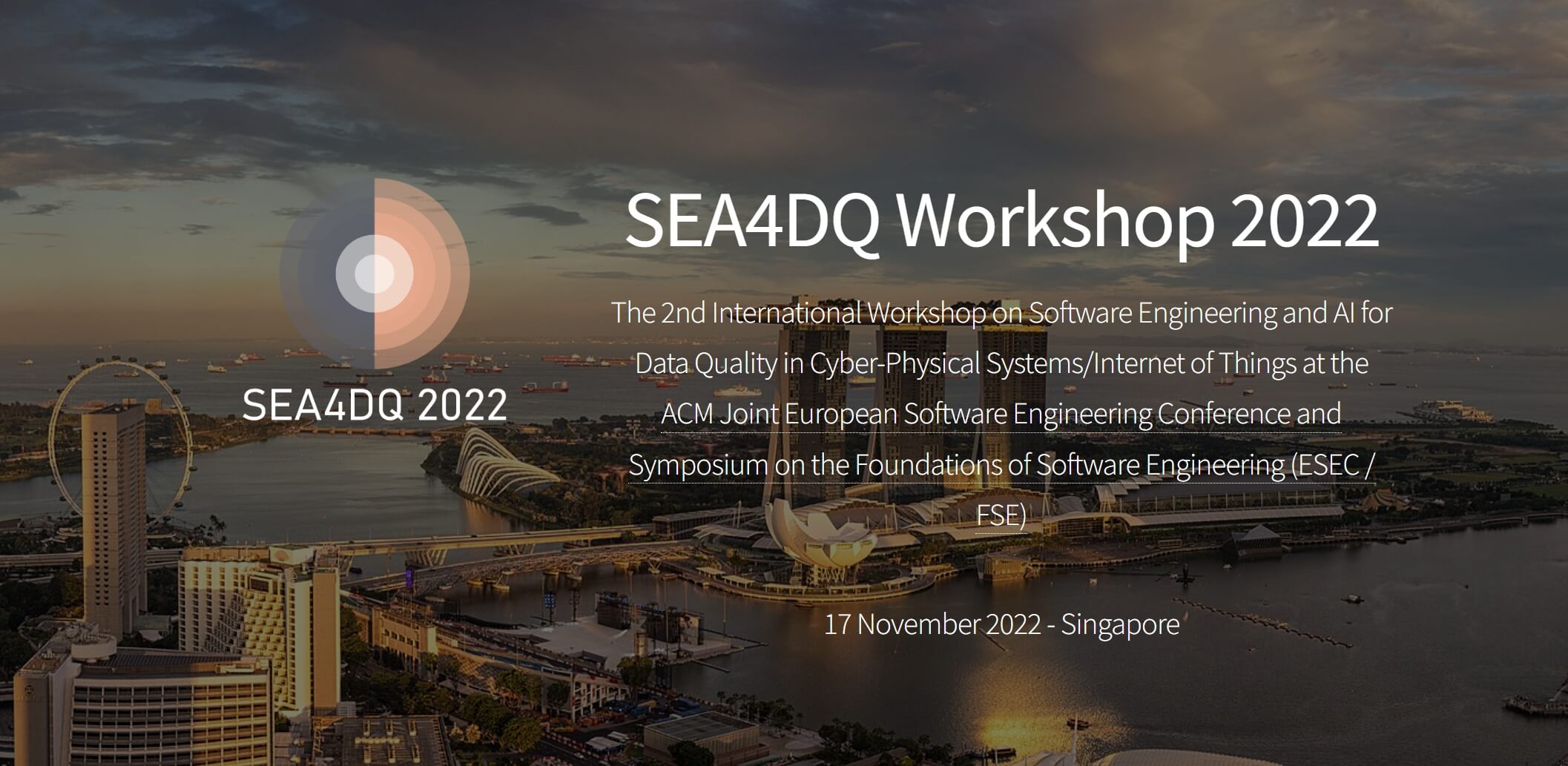SEA4DQ Workshop 2022
Call for Papers

About the workshop
Cyber-physical systems (CPS) have been developed in many industrial sectors and application domains in which the quality of the data acquired and used for decision support is a common factor. Data quality can deteriorate due to factors such as sensor faults and failures due to operating in harsh and uncertain environments.
How can software engineering and artificial intelligence (AI) help manage and tame data quality issues in CPS?
This is the question we aim to investigate in this workshop SEA4DQ. Emerging trends in software engineering need to take data quality management seriously as CPS are increasingly data-centric in their approach to acquiring and processing data along the edge-fog-cloud continuum.
This workshop will provide researchers and practitioners a forum for exchanging ideas, experiences, understanding of the problems, visions for the future, and promising solutions to the problems in data quality in CPS.
Important dates
- Abstract submission deadline: July 25, 2022 (optional)
- Submission deadline: August 1, 2022
- Notification of Acceptance: August 26, 2022
- Camera-Ready Submission: September 9, 2022 (hard deadline)
- Workshop: 17 November 2022
Call for papers
SEA4DQ 2022 accepts the following types of contributions:
Types of papers
- Position Papers (max. 2 pages) that analyze trends in data quality for CPS/IoT and raise issues of importance. Position papers are intended to generate discussion and debate during the workshop, and will be reviewed with respect to relevance and their ability to start up fruitful discussions;
- Work-in-progress Papers (max. 4 pages) that describe novel, interesting, and highly potential work in progress, but not necessarily reaching its full completion;
- Full Papers (max. 10 pages) describing original and completed research — either empirical or theoretical — in techniques, tools, or industrial case studies;
- Tool Papers/Demos/Posters (max. 4 pages) presenting some tools/demos/posters that are related to data quality;
- Presentation Abstracts that that will be around 250-500 words long (and presentation files if possible). If accepted, authors will give presentations at the workshop about (i) research results that are either already published or early research results not yet published; and (ii) industrial talks. This new track aims at stimulating the participation of industrial practitioners – who will be able to present the practices used in their contexts – as well as researchers – who may be interested in receiving feedback from the research community on early ideas. The abstract will only be reviewed by the program committee for relevance, and will not be included in the workshop proceedings.
Suggested topics
- Software/hardware co-design and architectures and frameworks for data quality management in CPS
- Software engineering and AI to detect anomalies in CPS data
- Software engineering and AI to repair erroneous CPS data
- Software tools for data quality management, testing, and profiling
- Public sensor datasets from CPS (manufacturing, digital health, energy,..)
- Distributed ledger and blockchain technologies for quality tracking
- Quantification of data quality hallmarks and uncertainty in data repair
- Sensor data fusion techniques for improving data quality and prediction
- Augmented data quality
- Case studies that have evaluated an existing technique or tool on real systems, not only toy problems, to manage data quality in cyber-physical systems in different sectors.
- Certification and standardization of data quality in CPS
- Approaches for secure and trusted data sharing, especially for data quality, management, and governance in CPS
- Trade-offs between data quality and data security in CPS
How to submit
All submissions must be in English and in PDF format. Submission Format: ACM Primary Article Template.
Please submit HERE (link will be added later).
The accepted papers will be published in the workshop’s proceedings (will be proposed for publication in the ACM digital library). As a published ACM author, you and your co-authors are subject to all ACM Publications Policies, including ACM’s new Publications Policy on Research Involving Human Participants and Subjects. At least one author of each accepted paper must register and present the paper in person at SEA4DQ 2022 in order for the paper to be published in the proceedings.
SEA4DQ Team / Contacts
Learn more: https://sea4dq.github.io/
General Chair
Phu Nguyen, SINTEF, Norway (Main Contact)
Program Chairs
Sagar Sen, SINTEF, Norway (Main Contact)
Maria Chiara Magnanini, Politecnico di Milano, Italy
Publicity Chair
Mikel Armendia, Tekniker, Spain
Web Chairs
Beatriz Cassoli, TU Darmstadt, Germany
Nicolas Jourdan, TU Darmstadt, Germany
